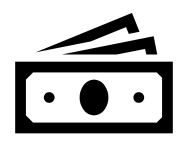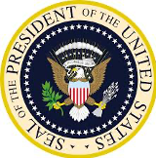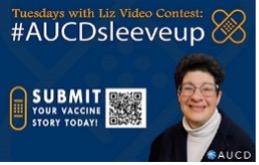 Fiscal Year 2022 Budget Fiscal Year 2022 Budget
Following the announcement of the presidential, budget Members of Congress continue to work on creating a budget package. Senators are interested in hearing from their constituents about areas of funding that are important to you.
Plain language:
- Now that the President has shared his ideas for the federal government's budget in 2022 Congress will work on passing a budget.
What it means to you:
- Many AUCD programs get their funding from teh federal appropriations process.
- Appropriations is the act of setting aside money for a specific program from the federal budget.
Action steps:
 Recovery Proposals Recovery Proposals
Negotiations continue on what to include in recovery and infrastructure legislation. Priorities in the disability community that are being considered as part of the legislative packages include:
- Ending subminimum wages and modernizing disability employment supports to allow for competitive, integrated employment;
- Continued expansion of access to Home and Community-Based Services (HCBS) for people with disabilities, ending waiting lists for services and ensuring a stable, valued direct support workforce;
- Meeting the needs of children, including children with disabilities in childcare and education from birth through college; and
- Ensuring all modernization of physical and virtual infrastructures are accessible.
Plain language:
- Congress is working on a big bill that could help people with disabilities. You may be hearing about it as a plan for improving our country's infrastructure.
- Infrastructure means the buildings, roads, bridges, power lines, and other things our country needs to work every day. It can also include systems that make our country work, like schools, healthcare, and other government services.
What it means to you:
- Disability issues are a large part of the American Jobs Plan, creating a need for all members of Congress to hear from you about Home and Community-Based Services and Competitive Integrated Employment. It is very important that all members of Congress are hearing from their constituents about how these investments will impact people and systems in your community.
Action steps:
- Register for the June 16, 2021 Community Living Policy Center webinar on the Biden-Harris Administration's historic proposal to invest $400 billion in the Medicaid HCBS program.
- Learn more about proposals:
- Email or call the Capitol Switchboard at (202) 224-3121 (voice) or (202) 224-3091(tty) and ask to be connected to your Senators and Representatives.
- You can use Congress.gov to find your Members of Congress.
- Leave a brief message sharing that Home and Community-Based Services (HCBS) and Competitive Integrated Employment are important to you. Ask to be updated on how the Member will support these issues.
Rationing of Care
The Office for Civil Rights (OCR) at the U.S Department of Health and Human Services (HHS) has announced that it resolved a complaint against the State of Arizona involving its Crisis Standards of Care (CSC) guidelines. This is the second enforcement action OCR has taken since OCR issued a Bulletin reminding covered entities of the continued applicability of civil rights laws during the COVID-19 public health emergency.
Plain language:
- If you are experiencing discrimination know that there is guidance and help to advocate.
What it means to you:
- Stakeholders can use this in working with states and medical professionals in developing fair and non-discriminatory plans.
Action steps:
 American Rescue Plan American Rescue Plan
On March 11th President Biden signed the American Rescue Plan Act ( P.L.117-2). The $1.9 trillion legislation provided additional relief to address the continued impact of COVID-19 on the economy, public health, state and local governments, individuals, and businesses. The law includes investments to address the needs of the disability community. States are now planning for how to use the HCBS funding that was a part of the plan.
- President Biden signed the American Rescue Plan Act. It provides money from Home and Community Based Services and education for students with disabilities.
What it means to you:
- The money included in the Act for people with disabilities is a result of all the advocacy efforts of the disability community over the past year. You can engage with how these dollars are being used in your state and community.
Action steps:
- Learn more about the American Rescue Plan:
- Learn more about implementation:
 Biden-Harris Administration Biden-Harris Administration
The White House announced David Weil as its Nominee for Wage and Hour Administrator, Department of Labor.
Plain language:
- President Biden continues to appoint people who will serve our country during his Administration.
What it means to you:
- The transition creates new leaders in federal agencies. The work of these agencies will create changes in federal policy that impacts the lives of people with disabilities and their families.
Action steps:
- Continue to follow new from the Biden Administration at whitehouse.gov.
 COVID-19 Vaccine Authorization COVID-19 Vaccine Authorization
Moderna has released data showing its COVID-19 vaccine was found to be 100% effective in children ages 12 to 17 two weeks after their second dose; the company plans to request emergency use authorization approval for adolescents soon. Moderna and Pfizer have both also applied for full FDA approval for their COVID-19 vaccines.
Plain language:
- COVID vaccines will soon have full approval; this is a step past the emergency approval they have now.
What it means to you:
- We continue to learn more about the effectiveness and safety of the COVID vaccines.
 COVID-19 Vaccine Distribution COVID-19 Vaccine Distribution
Because of the elevated risk of serious illness and death due to COVID-19, vaccination is critically important for people with disabilities. However, we know that many face significant barriers to getting vaccinated. Work at the federal, state, and local levels continues to reach the goal of everyone 12 years-old and over having access to vaccine and 70% of people being vaccinated by July 4th.
Plain language:
- Work is happening to make sure people with disabilities can get COVID-19 vaccines. If you have been vaccinated, there are now less restrictions.
What it means to you:
- Work is happening to make sure everyone can get their COVID-19 vaccine and feels safe doing so.
Action steps:
- AUCD COVID-19 Vaccine Confidence Initative: 23 AUCD network centers are engaged in a national effort t ovaccinate all eligible individuals with disabilities by the anniversary of the Americans with Disabilities Act at the end of July. Learn more about the AUCD network centers involved and find resources on the National Center for Disability in Public Health site.
- Consider joining the Administration-led Vaccine Month of Action by committing to host a person-to-person outreach event for persons in the disability community!
- Tools:
- There are three easy options from the U.S. Department of Health and Human Services to find a COVID-19 vaccine:
- Visit vaccines.gov (English) or vacunas.gov (Spanish) to search and find a vaccine near you.
- Text GETVAX (438829) for English or VACUNA (822862) for Spanish to receive three vaccine sites on your phone within seconds.
- Call the National COVID-19 Vaccination Assistance Hotline at 1-800-232-0233 for those who prefer to get information via phone call. The call center can assist in 150+ langauges and features a TTY line (1-888-720-7489).
 Policy Talk Policy Talk
Have a personal or professional connection to disability policy? Submit a post to AUCD Policy Talk! Check out submission guidelines.
 #AUCDsleeveup Tuesdays with Liz Contest! #AUCDsleeveup Tuesdays with Liz Contest!
We are excited to announce the new #AUCDsleeveup Tuesdays with Liz Contest! We are looking for short videos from persons with disabilities, their family members, and other friends of the disability community sharing why you got the COVID-19 vaccine! Videos will be posted to AUCD social media and available for you and others to share with your own social media. The top three videos with the most likes, comments, and shares on social media will *win* AUCD gear and the person with the top video will also win an interview on a Tuesdays with Liz episode!
Submit your #AUCDsleeveup vaccine story today!
#AUCDsleeveup TWL Contest Rules:
- Videos must be less than one minute long.
- Videos should show the face(s) of the person(s) speaking.
- Say your name, how you are a part of the disability community (person with a disability family members, support professional, friend), and why you got the COVID-19 vaccine. For example, "Hi, my name is Liz and I am a person with a disability. I got my COVID-19 vaccine because I want everyone to be healthy and to see our families and friends again."
- We ask that you communicate as clearly as possible so that we can add captions.
|
| |
|
